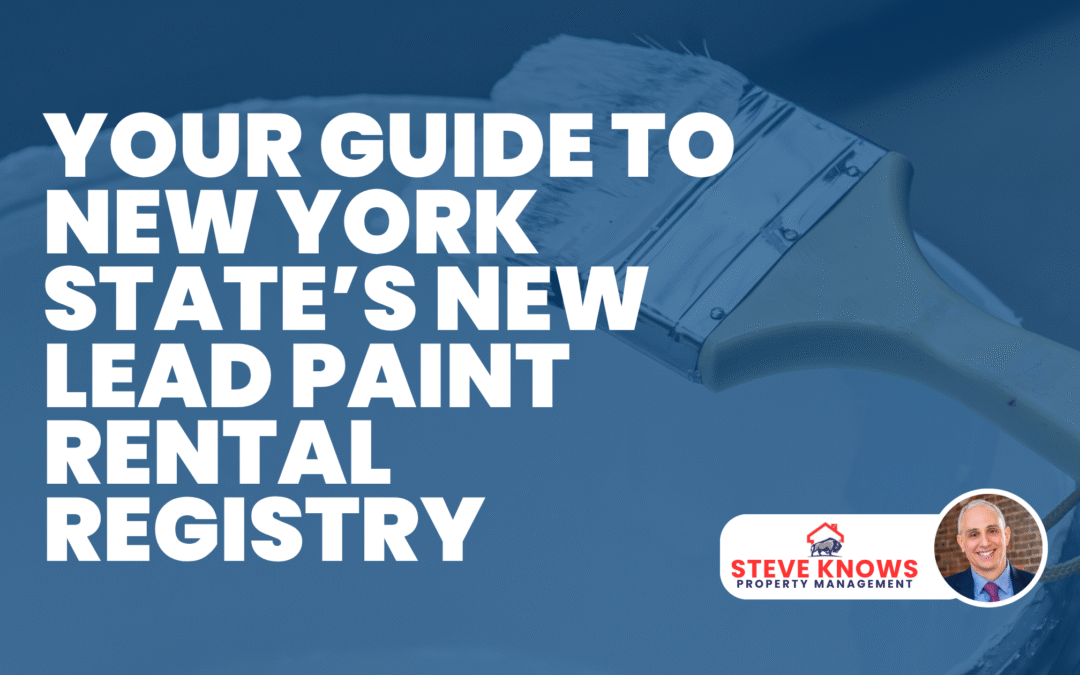Next month, a new law in New York State will make lead paint inspections mandatory for landlords in communities where the risk of lead poisoning is particularly high. In these communities, which include Buffalo, Cheektowaga, and Niagara Falls, landlords will have to comply or risk facing civil penalties like fines (up to $250 per day for initial violations and $500 per day for unresolved repeat violations) and legal action.
Here’s what you need to know and how you can prepare.
A Summary of the New Law
The new Lead Paint Rental Registry Law, Section 1377 of the Public Health Law, was passed in May 2023. The law draws inspiration from the city of Rochester’s lead poisoning prevention model, which was adopted in 2005 and has successfully reduced rates of childhood lead poisoning since.
It applies to pre-1980 multi-unit rentals in 25 high-risk communities (you can find a full list of these areas, which were designated by the Commissioner of Health, here). The Department of Health has estimated that around 282,000 buildings statewide will fall into this category.
In order to continue renting to tenants, landlords in these areas will have to enroll in a statewide registry and have their units inspected for lead paint every three years. Inspections, which will include visual checks for peeling or flaking paint and dust wipe sampling, will start next May. Certifications are due by Oct. 1, 2026.
If an inspector does find a lead hazard, landlords will have 45 days to remediate the issue. Only EPA-certified contractors are permitted to complete these repairs or renovations.
If the issues aren’t resolved on time, landlords could be fined or faced with other penalties.
What Should Landlords Expect Going Forward?
XRF testing by EPA-certified inspectors, remediating hazards (like deteriorating paint or lead dust) when detected, and maintaining records and consulting with attorneys to ensure compliance can all create added costs for landlords.
Still, there are some proactive steps property owners and landlords can take.
- Identify any properties in your portfolio that will be affected by Section 1377.
- Evaluate those properties for any conditions that are conducive to lead poisoning.
- Plan or budget for the cost of inspection, certification, and remediation every three years. (Note: The Leading in Lead Prevention Pilot Program offers $20,000,000 annually for lead hazard remediation in affected areas.)
- Ensure all contractors are certified in Renovation, Repair, and Painting (RRP), a lead-safe certification which is federally mandated for any projects that disturb paint in pre-1980 rental units, or get certified yourself.
- Continue to watch for finalized state regulation standards and local administrative protocols. (So far, plans for enforcement at the municipal level have not been finalized or made public.)
Have questions about how this new legislation will affect you and want to know more?
Please reach out – I would love to help!

